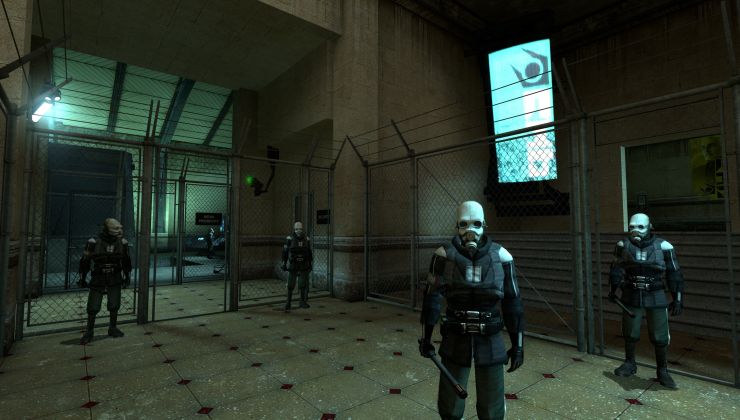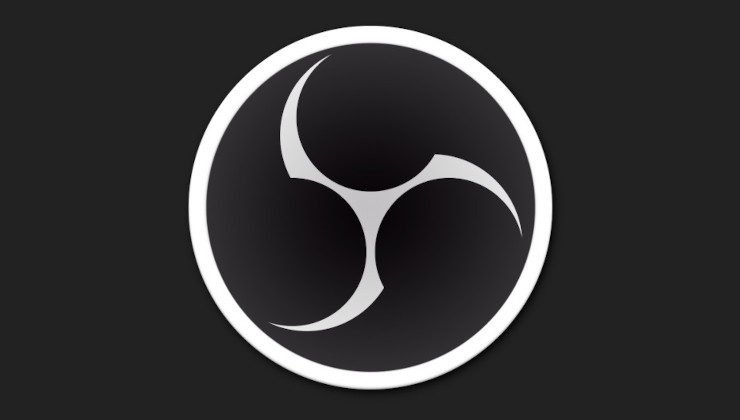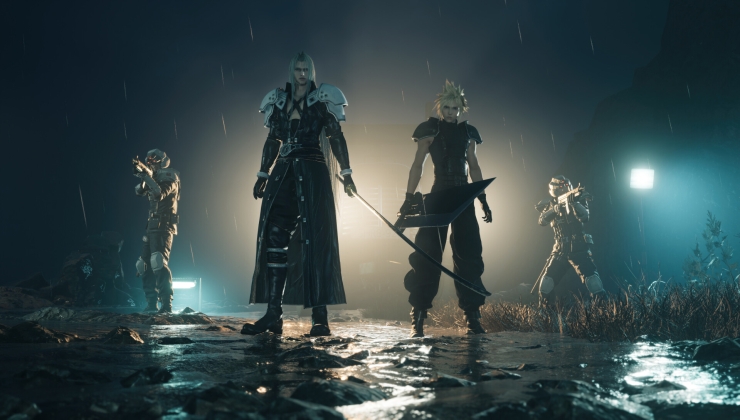Want to learn a little more about Lutris, the popular Linux app for managing games, emulators and much more? Here's your chance.
Note: like with the recent Heroic Games Launcher interview this was originally posted on Reddit, with the user sending it over to GamingOnLinux for republishing. We're just providing a space here for more people to see it and learn more. Also, if you didn't see recently, the creator of Lutris recently joined Playtron.
Here's the interview:
Introduction and Background
Q1: Can you tell us a bit about yourself, Lutris and how it got started? I see that you initially made Oblivion Launcher, so this has clearly been your passion for a long time. What sparked you to jump from that to Lutris?
Mathieu Comandon: "I had recently switched to Linux as my main OS, after using it on secondary machines for a while. I still wanted to play my games but at the time, it meant reading tutorials that would get outdated really fast or only worked on one distro. Getting games to run on Linux could become a very frustrating experience at times but it seemed that this could be considerably improved."
Q2: In a more broad sense, what was the inspiration behind creating Lutris?
"Around that time I was using Cedega, a proprietary fork of Wine with a nice GUI. I wanted something similar but open source but I didn't want to limit myself to Wine games like Cedega or PlayOnLinux did. I wanted support for all games that could run on Linux, which included native games and emulators."
Q3: Can you give us a brief overview of your team's background and how you came together to develop it?
"These days, the team is mostly Daniel Johnson, who does an enormous amount of user support on Github and GloriousEggroll who provides builds for Proton-GE. Then there's the Open Wine Components project that encompasses other gaming projects and regular contributors on Github.
There's also a very active moderation team on the Discord server.
There's no fixed team structure, anyone can just come and go, do their own thing."
Q4: How has Lutris itself evolved since its initial release?
"15 years ago, gaming on Linux was very experimental. With the evolution that happened in the past years, it's now something we have integrated in our lives. Games running on Linux is now the norm. So instead of tinkering, we can shift our focus on making sure games keep running in the years to come, particularly games that are no longer being sold."
Tell me about your logo for Lutris!
"The initial logo (the version with the Atari joystick) was designed by a friend of mine at the time and later received some updates to make it more readable at small sizes. It was always meant to take inspiration from Mozilla's logos. A lot of projects have an animal as their logo: PHP, Postgres, Firefox... so I wanted my own animal mascot. I picked the otter because it's an animal that likes to play!"
Features and Functionality
Q5: What are the key features that set Lutris apart from other game launchers? There is a few now who offer similar capabilities, what makes Lutris so unique?
"Lutris is the only launcher on Linux to support such a wide array of games from all platforms. Most launchers focus on Wine but Wine is only one of the 54 runners we currently support. The idea is to be able to build a collection of all the games you have played during your lifetime, easily accessible and playable."
Q6: How does Lutris integrate with Steam, especially on the Steam Deck?
"The Steam integration is much more basic now than it once was when we used to run Steam in Wine. Running Steam games from Lutris only calls Steam with the correct Steam ID, the options in Lutris don't apply to the Steam game. For the Steam Deck, it's the opposite: Running Lutris games in Steam. We have a feature for creating shortcuts for Lutris games in the Steam UI. In the next release of Lutris, we'll also have better support for running games with umu on the Steam Deck (it makes it possible to use Proton instead of Wine)."
Q7: Could you explain how Lutris handles the management and optimization of non-native games?
"We call runner any program that can launch games, native games being the only games that don't require one. We provide binaries for those runners, which get updated on a more or less regular basis. The important is not using the latest version but having a version that can run games really well. For example, we ship DOSBox Staging to provide a better experience for DOS games. Wine / Proton is the only runner that receives some patching."
Q8: What features do you think are the most underappreciated by users?
"Certainly the collection management and non Wine games aspects. I often see people with less than 10 games on Lutris and all mostly Wine based. On my end, I have over 1300 installed games for a variety of platforms. Sadly, the fact that people have switched from HDDs to SSDs doesn't help building a large video game collection."
Development and Community
Q9: How do you prioritize and manage feature requests and bug reports from the community? I see you have such a sizable community built up around you (which speaks volumes to your skills as a programmer), can you describe what goes into prioritizing bugs or features?
"If something is broken and impacts significantly the usage of Lutris then that gets the highest priority. Then comes the pull requests submitted by contributors. Bugs that can't be reproduced or features that would only interest a small portion of users get the lowest priority."
Q10: Can you share any interesting stories or challenges you faced during the development of Lutris?
"Between 2011 and 2012, the development of Lutris had crawled almost to a halt because of a game called Minecraft.
At numerous times, maintaining the project felt very overwhelming and it was often difficult to deal with that. I often resorted to measures that were more or less clumsy but however gave me some breathing space (for a few months, reporting issues was only allowed to previous contributors, for example). Nowadays, managing the project is much easier. I put less pressure on myself to try and micro-manage everything and I get some precious help from the community to help me with Github."
Q11: How important has community feedback been in shaping Lutris? Can you give an example of a community-driven feature that you ended up implementing?
"The community has a tendency to push for the adoption of newer technologies while I have a tendency to hold back a bit before we adopt anything new. Some people use lutris on quite outdated systems and we try not breaking anything until a distribution gets really old. Finding the right balance is quite an art but the community helps in knowing what is needed and which systems can be dropped.
Also, a few runners we have were entirely written by community members. Translations are another aspect that is heavily driven by the community."
Q12: How do you foster a positive and engaged community around Lutris? Your discord in particular are so positive about your product, how do you encourage your users to participate and contribute
"I don't have the time to do much on Discord but there is an amazing moderation team. Troublemakers are kicked out really fast which keeps the vibe on the server positive. Personally, I tend to engage more with the community on Github and Mastodon."
Technical Aspects
Q13: What technologies and programming languages is Lutris built on?
"The desktop client is using Gtk 3, the website uses Django. Both are written in Python. We also have a moderation dashboard written in VueJS."
Q14: Can you discuss the challenges and solutions in ensuring compatibility across various Linux distributions?
"We've been shipping a set of libraries with Lutris trying to increase compatibility across distros. This isn't a perfect solution but works for the most part. This is the approach Steam used to have. Now, similarly to Steam, we are transitioning to a container based approach, whether it's pressure vessel with umu or Flatpak."
Q15: How do you approach optimizing performance for different hardware configurations, especially for the Steam Deck?
"We don't really have anything in place that target specific devices. We do however provide many option to let users find the best possible setting for their games."
Q16: How do you handle the rapid changes and updates, do the Steam Deck's updates ever affect what you do?
"There are some breakages once in a while but so far the Steam Deck with its immutable OS has been pretty stable. We're still working on providing support for using Proton on the Deck's game mode but it's coming soon."
Future Plans
Q17: What are your short-term and long-term goals for Lutris?
"Short term is the release of Lutris 0.5.18. It will contain all the fixes and improvements made during the past few months, but nothing really groundbreaking. In the longer term, we're going to start working on a "Big picture mode" (integration with OpenGamepadUI) and cloud saves."
Q18: Are there any upcoming features or improvements you’re particularly excited about?
"The 2 I mentioned earlier, cloud saves and fullscreen UI are very important. We also need a better rating system and better support for Flatpak (by making the Lutris Flatpak very thin and using other Flatpaks to run games)"
Q19: How do you see Lutris evolving with the advancements in gaming technology and hardware?
"That mostly depends on upstream projects like Gamescope, VKD3D, Mesa or Plasma. We used to lack a lot of features of newer hardware like HDR or ray tracing. Now, we have pretty much every feature used in games like DLSS, FSR3, HDR, etc... Now, we're only lacking in anti-cheat support."
Q20: What is your vision for the future of gaming on Linux?
"Projects like the Steam Deck and Playtron are going to help push gaming on Linux outside of the Linux community and make it available to a wider audience. Maybe we'll finally see game consoles for the TV using Linux. The new trend of handhelds is nice but it's not the best way to experience games with graphics pushed to their highest settings."
Community and Support
Q21: What are the best ways for users to get involved with the Lutris community?
"Easiest way is to join the Discord server. That's where most of the non-development stuff happens. We might get a bridged Matrix room at some point too."
Q22: How can users contribute to the development or support of Lutris?
"For development, we have a list of open tickets on Github, and if someone wants to implement something new, I recommend creating a ticket if one doesn't exist. Sometimes, some contributors send a patch which doesn't fit the project and we don't merge it. We want to avoid that kind of situation, especially for substantial patches.
Supporting the project financially is very much appreciated. There are Patreon, Paypal and Liberapay Lutris accounts that can be used for donations. We don't accept cryptocurrency though."
Q23: What resources do you offer for new users to get started with Lutris?
"The goal for Lutris is to not require any ressources to get started so if anything is missing or unclear, report it as a bug."
Q24: How do you address user support and ensure issues are resolved efficiently?
"In a lot of user support for Lutris means troubleshooting generic Linux issues. That's we have both a Lutris Support and Linux Support channels in our Discord server. Usually, when something is broken in Lutris, we'll start getting multiple reports for it and we prioritize those issues first."
Closing Thoughts
Q25: What advice would you give to aspiring developers who want to create their own game launchers or similar tools?
"Build a very small project that solves a real and specific issue you have and try to make it work. If it solves your problem, it may continue evolving into something bigger."
Q26: Is there anything else you’d like to share with our readers about Lutris or your team?
"When I started working on Lutris, I had no idea it would reach this size. I initially imagined it would mostly be picked up by the community and I would focus on other project. But then Linux gaming got really big (Vulkan happened) and with it Lutris got bigger too and at this point it was clear no one was going to take over. Lutris was becoming a recognized open source project and I was invited to events like WineConf and Ubuntu Summit. After a lot of perceverance, it really paid off!"
Q27: What has been the most rewarding aspect of developing Lutris for you personally?
"It has been an excellent learning experience in plenty of fields. And it has certainly helped me get jobs more easily. But the best reward is Lutris itself. Being able to manage a large library of games spreading over decades and multiple systems."
Thanks again to the user who submitted it and thank you to Mathieu Comandon for doing it.
Hats off, gentlebeings.
I was using lutris over heroic on the SteamDeck, but the NonSteamLaunchers tool seems to cover things pretty well.
I still have lutris on desktop and trying to install my GOG library so I have access to those games as well. Gaming from the Deck has become my primary means to gaming. General I have had luck streaming, but some games don't get the window management right and the stream disconnects.
Lutris is still great and appreciate what it does even though I don't use it much.






 How to set, change and reset your SteamOS / Steam Deck desktop sudo password
How to set, change and reset your SteamOS / Steam Deck desktop sudo password How to set up Decky Loader on Steam Deck / SteamOS for easy plugins
How to set up Decky Loader on Steam Deck / SteamOS for easy plugins
See more from me